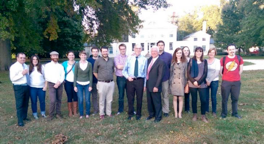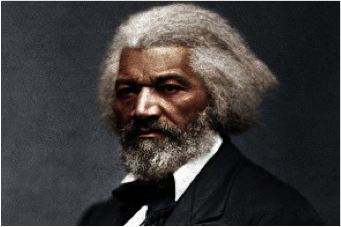What do Talbot County, Maryland, and County Cork, Ireland have in common? Frederick Douglass, the distinguished nineteenth-century writer, orator, and major figure in abolition and emancipation in the United States and abroad. Born into slavery on Maryland’s Eastern Shore, Douglass travelled and spoke widely on Emancipation in the US and Home Rule in Ireland.

The Graduate School at the University of Maryland (UMD) and the College of Arts and Sciences at University College Cork (UCC) have joined together to sponsor a year-long graduate student project on this great historical figure. Not only was this project transatlantic, it also was interdisciplinary, bringing together archaeology students from UMD and literature students from UCC.
Concurrent seminars on Douglass were conducted at the two universities in January 2014, with the two groups of students often meeting together over Skype. The UMD students visited Ireland in September for a planning conference, and the UCC students visited Maryland in October for a symposium in which the two student groups presented their research findings at a day-long symposium open to the public. The papers will be published in book form.

– Frederick Douglass
The symposium was followed by a program and reception for the students at Wye House, where Douglass had been enslaved. Hosted by Mr. and Mrs. Richard Tilghman, whose family has owned the property since the seventeenth century, the event included several representatives of the Frederick Douglass Honor Society and the Honorable John McDonough, Secretary of State for Maryland.
Dr. Mark Leone, Professor of Anthropology and associate dean in the Graduate School at UMD, and Dr. Lee Jenkins, Senior Lecturer in the School of English at UCC, led the collaboration. Dr. Leone is the director of Archaeology in Annapolis, and has been excavating the slave quarters at Wye House with UMD doctoral students.
